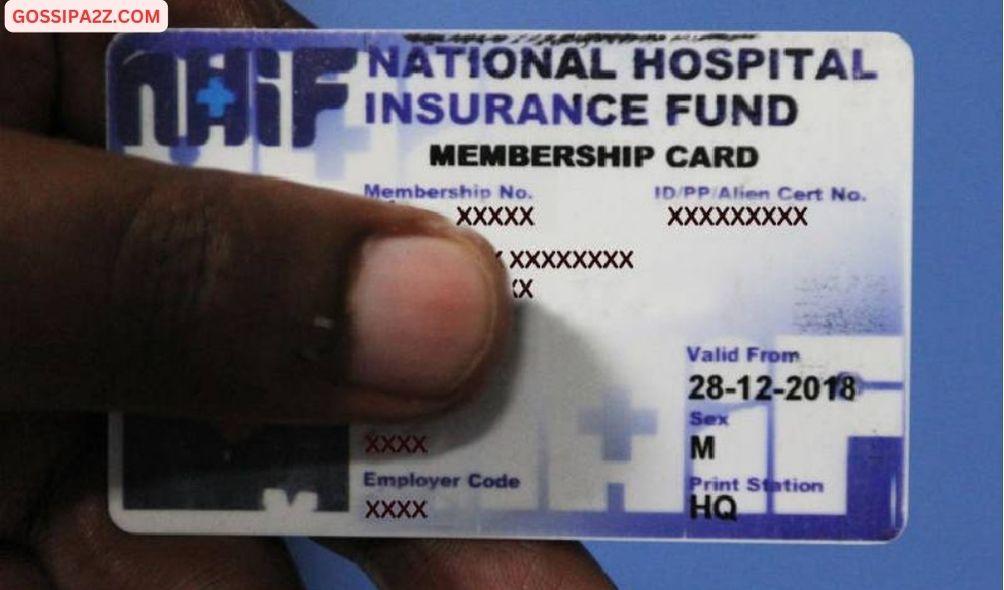Healthcare Crisis: Private Hospitals Pull Out of NHIF Coverage
Upon arrival at the Mother and Child Hospital in Eastleigh, Gossipa2z.com witnesses hospital personnel affixing a notice to the bulletin board.
Upon further examination, it becomes clear that the Rural Private Hospitals Association of Kenya has followed through on its warning to stop providing healthcare services to NHIF beneficiaries, choosing instead to require payment upfront for treatment.
The hospital states that this action is required due to NHIF’s inability to resolve outstanding claims.
“The notice is to show that we will have no services rendered to outpatient and inpatient customers, including specialized services like eye care, dialysis, and cancer care will be requiring customers to pay upfront in cash for consultation, procedures, and lab fees,” says Mathew Mwenda, the hospital’s claims officer.
“Of course, we will offer emergency services to those who need it.”
Dr. Tim Theuri, CEO of the Keny Health Foundation, expressed that they are unable to sustain the services they previously provided to Kenyans. This isn’t due to a lack of willingness, but rather a lack of capability.
“Most of the providers in healthcare are SMEs and they cannot sustain prolonged credit periods. If you go outside the 90 days that the NHIF contract provides then we begin to have problems bc people are not able to,” he adds.
The scenario mirrors that of numerous other providers across the country, who express distress over the financial limitations stemming from NHIF’s delayed payment of claims. Many claim that this predicament has pushed their businesses to the edge of collapse, compelling them to make what they deem as their sole viable choice.
ALSO READ:
- “Two Groups, One Agenda”: Gachagua Accuses Raila of Secret Political Deals
- Exclusive: Ida Odinga’s 75th Birthday Party in Karen (Photos)
- FKF President Discloses Exact Amount Paid to Harambee Stars Players
- Gachagua’s Ally Senator John Methu Admits Ruto Might Win 2027 Elections
- Maraga Explains Why He Hasn’t Campaigned in Kisii Despite 2027 Bid
Private healthcare institutions are alleging that the national hospital insurance fund is causing frustration for both hospitals and patients in their pursuit of healthcare. They claim that the NHIF is being dishonest by initially providing pre-authorization for a medical procedure but then refusing to cover the associated costs.
They claim that a circumstance is undermining the trust that forms the foundation of the entire healthcare system.
“It didn’t just get slow in the matter of payment, but approvals too. Before a patient gets a procedure approved or a claim paid it takes time,” says Mwenda.
The Kenya Health Federation has issued a cautionary statement, emphasizing that without prompt action to address the issue, healthcare providers may resort to implementing measures such as requiring Kenyans to assume financial responsibility upon signing informed consent forms, implementing an indemnity model where patients pay upfront and then seek reimbursement, mandating cash deposits as guarantees from health seekers, or even transitioning to a cash-only payment system. They stress that these measures could potentially undermine financial protection for citizens.
“The last few months have been interesting for us. We have engaged with NHIF around the provider space and money owed to providers and that’s just a small portion of the problem,” says Dr Theuri.
“What providers say is that there’s not enough money circulating within the sector for them to offer quality health care. The constitution says every Kenyan has a right to the highest attainable standards of care and if you don’t recourse then they are not able to give good care.”
Healthcare Crisis: Private Hospitals Pull Out of NHIF Coverage
